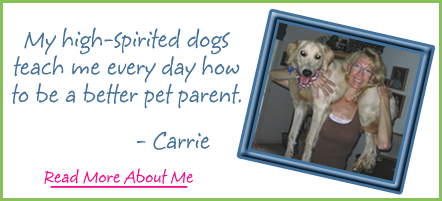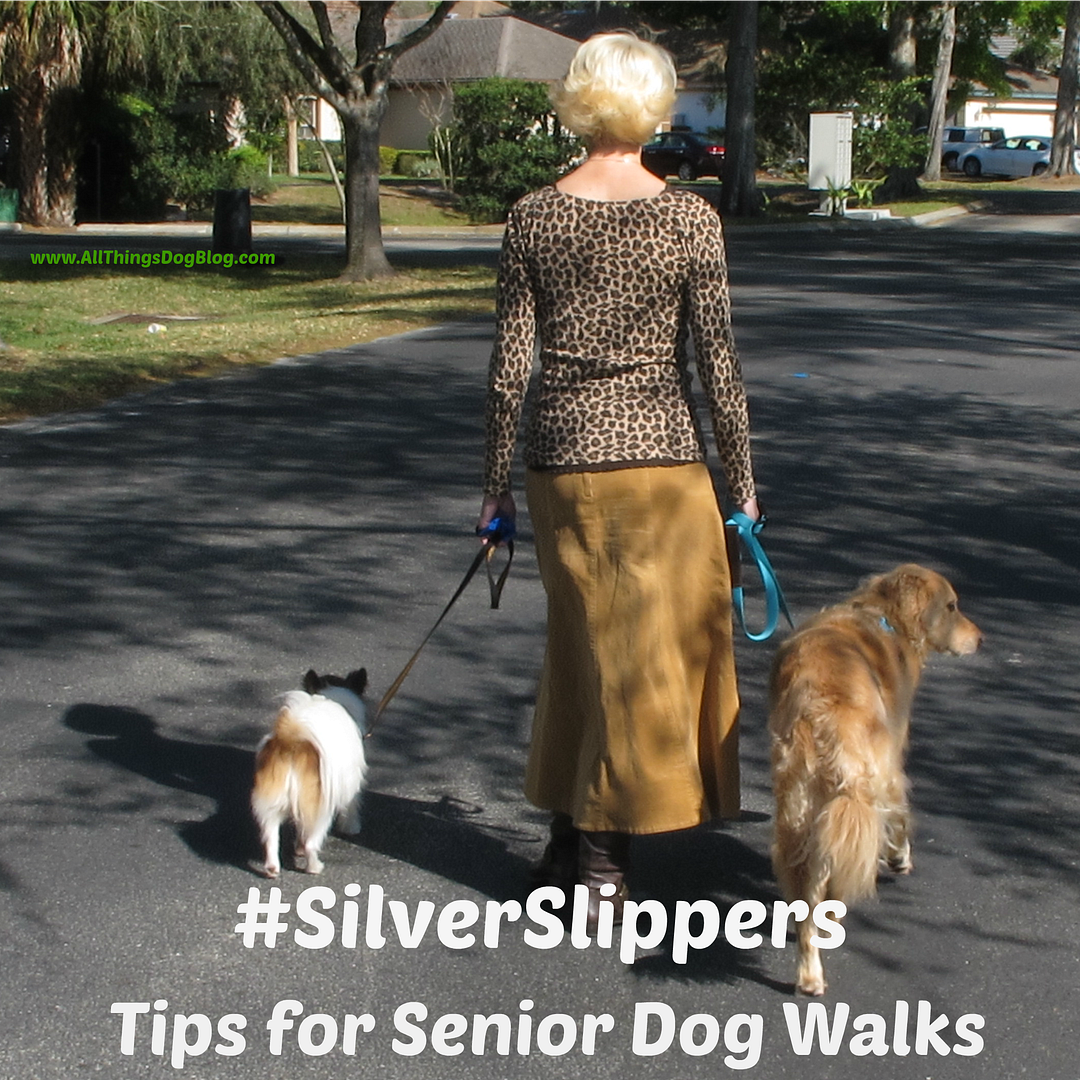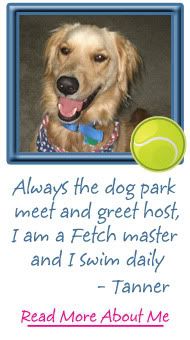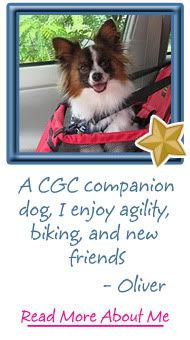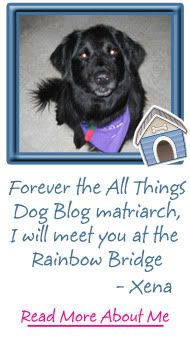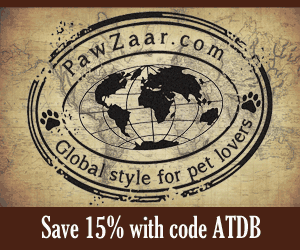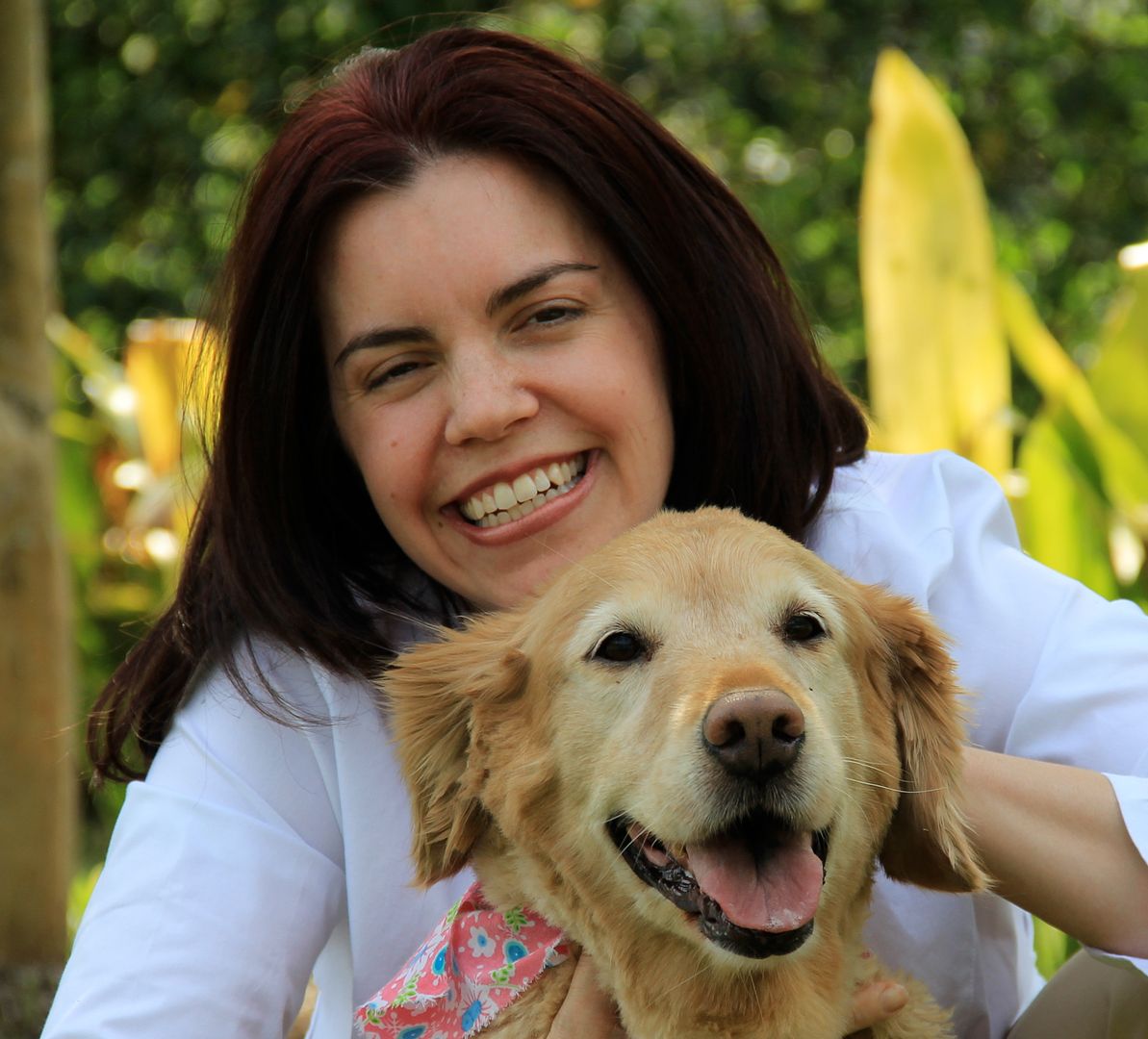© Carrie Boyko
Black Dog Syndrome's Upside
You're probably shaking your head right now. "Is she nuts?" There is no upside to Black Dog Syndrome. Think again!
Before I explain how, look at this fierce, howling, black Fido in the picture above. She's my Xena at about age 12. Even in her later years, that answering howl to neighborhood dogs baying was, to an uneducated onlooker, a scary thing. I always knew the real truth; here's the lessons I could use. You can employ them also, if you have a black dog.
At 55 pounds throughout most of her adult life, Xena was certainly not a giant breed, yet was no small dog. More than a few times a repair man, sales person or other visitor asked me to secure her before they approached. I had to laugh to myself, knowing this little softie as I did. She wouldn't have hurt a fly.
When Patches brought her lizards from outdoors, proudly displaying them to get Xena's praise, Xena just watched as Patches played with the small victim. Afterwards, she would generally give Patches a bath, as if to say, you got dirty playing that messy game and it's time to clean up now, young 'un!
What's my lesson? No matter how ferocious your black dog may appear in the window, your people-loving dog will be a safe bet on your homeowner's insurance (saving you money!), while at the same time serving to keep unscrupulous visitors at bay in your absence.
More than once when I answered the door with Xena at my side, I was happy to have a wary onlooker ask "Will he bite?". I always knew that her presence here was good burglar prevention. Who needs an alarm system when they have a big black dog hanging out by the front door? | 
























